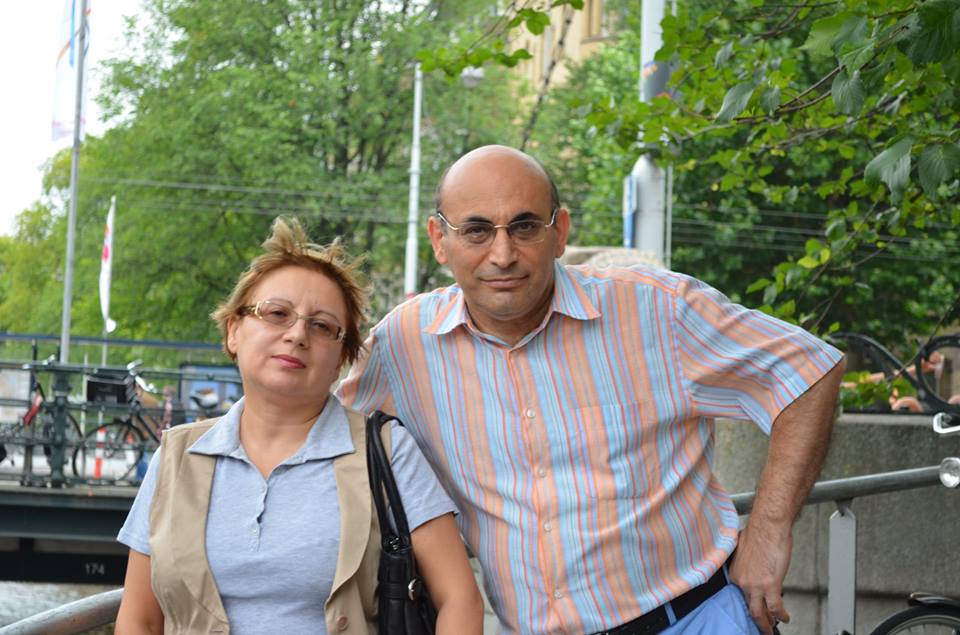
Leyla Yunus (L) and her husband Arif Junus (R), prior to their arrest. Photo: Villa Decius
As Yunus was unable to collect the prize in person, her friend Atakhan Abilov, himself a refugee from Azerbaijan, received the award on her behalf during a ceremony at Krakow's Villa Decius.
“On the way here I was thinking what words we would have heard from Leyla's lips if she had been here to be handed the award in person,” Abilov reflected.
“I came to the conclusion that she would have come here with posters of political prisoners,” he said.
During Abilov's speech, pictures of some of Azerbaijan's 100 or so political prisoners were beamed onto a screen, including lawyers, bloggers, journalists and politicians who had fallen foul of the current regime.
Abilov stressed that he is “very afraid” that Yunus and her husband Arif face the same fate as Professor Novruzali Mammadov, who died in captivity in 2009.
“Every day, Leyla undergoes inconceivable torture, both from her cell-mates - habitual criminals - and from prison staff,” Abilov claimed.
“She is tortured, beaten, her hair is pulled and she is thrown to the ground.”
Yunus and her husband were imprisoned in July 2014, following a long-running campaign against her in the Azerbaijani press.
She had been a committed campaigner in the struggle to expose the plights of political prisoners as the director of the Institute of Peace and Democracy in Baku.
Authorities accused her of spying for Armenia and tax evasion.
The jury of this year's prize, which is named after the late UN High Commissioner for Human Rights Sergio Vieira de Mello, consisted of representatives of the President of Poland, the Polish Ministry of Foreign Affairs, the UN High Commissioner for Refugees, and a number of foreign embassies and NGOs.
In the closing speech, Senator Bogdan Klich commented that 25 years after the collapse of communism in Poland, his country is committed to showing solidarity with dissidents in countries where democracy has not yet taken root.
Meanwhile, Bulgaria's Amalipe Centre for Interethnic Dialogue and Tolerance was awarded the Sergio Vieira de Mello Prize in the NGO category.
The Amalipe Centre aims to achieve equal rights for the Roma community in Bulgaria and work towards the integration of Roma into Bulgarian society.
“For us it's really a big honour, and not just for us as an organisation, but also for the whole Roma and non-Roma community that we work for,” the Amalipe Centre's Teodora Krumova told Polish Radio's English Section.
“There are three things that can make the powerless powerful,” she said.
“One thing is solidarity, the other is to believe in the vision that you can change the world and change the things that are happening to you, and the third is to start doing it.
“When you make a person believe that he or she can achieve something, then nothing can stop them.”
This year, 24 people were nominated in the 'Personal Achievement' category, and 15 groups were were put forward in the “Non-governmental Organisation” category. (nh)